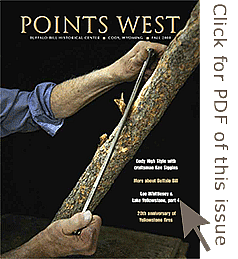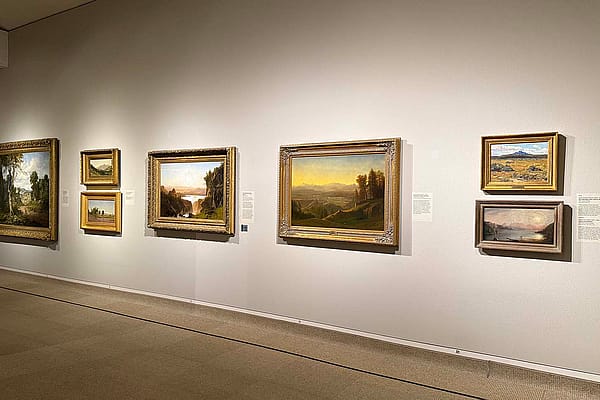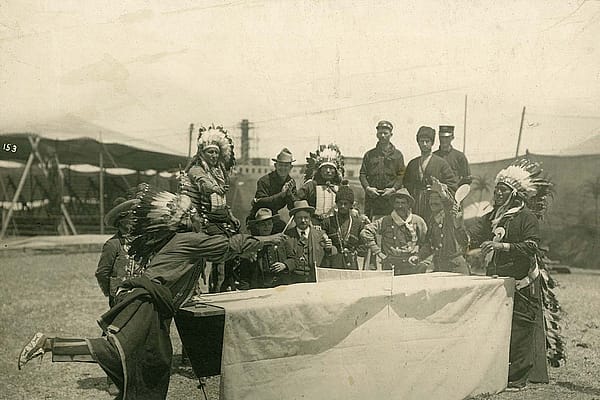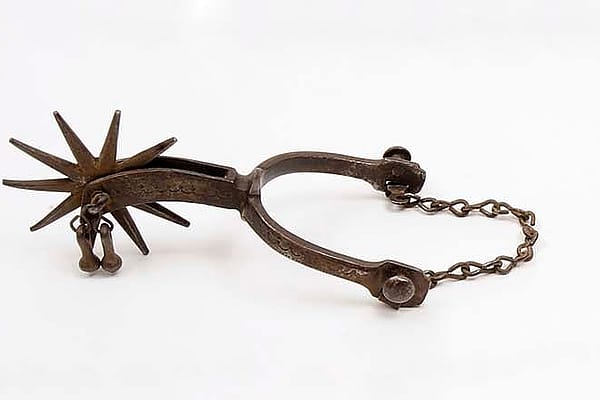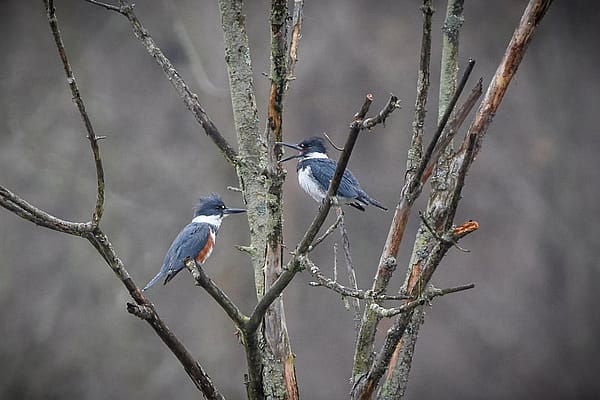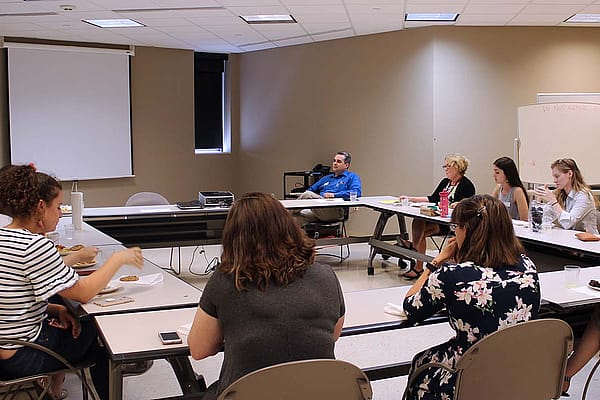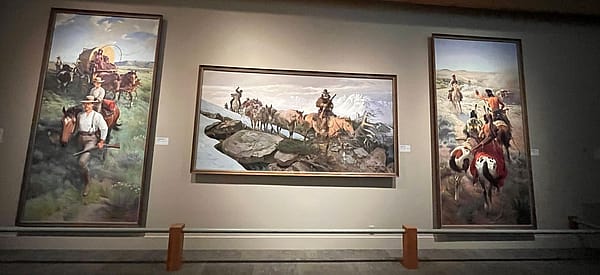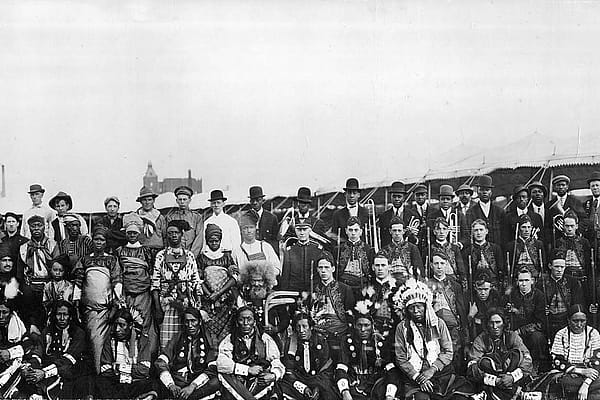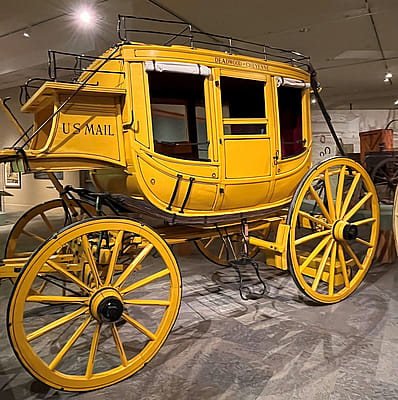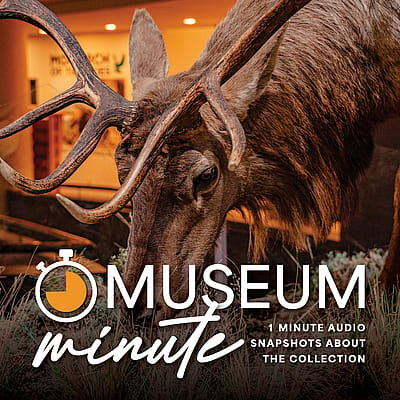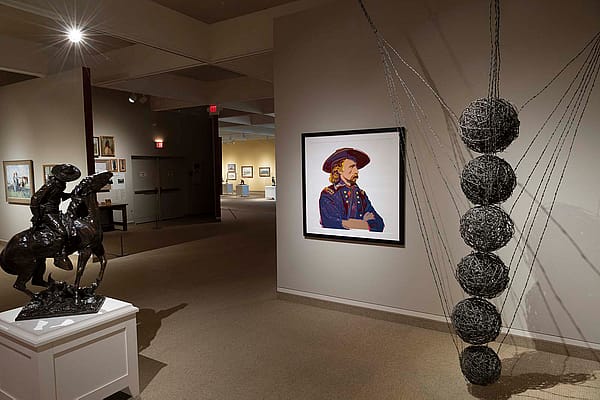
The Cowboy Scourge, an 1887 Commentary – Points West Online
Originally published in Points West magazine
Fall 2008
The Cowboy Scourge, an 1887 Commentary
By Bill Nye (Edgar Wilson Nye)
New York World, October 30, 1887
In January 2008, Dr. John Rumm started trailing William F. “Buffalo Bill” Cody down some proverbial long-and-winding roads. As then-Editor-in-Chief of the Digital Buffalo Bill Project (now the Papers of William F. Cody) at the Buffalo Bill Center of the West, he discovered many new insights into the life and times of the “Great Showman.”
This one, from nineteenth-century American humorist Bill Nye—who, in 1881, founded and edited the Laramie Daily Boomerang in Laramie City, Wyoming Territory—has an unexpected twist as Nye, ostensibly perhaps, worries how the world’s youth will be affected by Buffalo Bill’s Wild West. The subheadings read: “Bill Nye Fears an Incursion of European Amateurs,” “Baleful Effects of Buffalo Bill’s Show on Old-World Youth,” and “The Real and the Ideal Cowboy Contrasted to the Latter’s Disadvantage.” Granted, the language is certainly not always “politically correct” by twenty-first-century standards, but for 1887, it was commonplace.
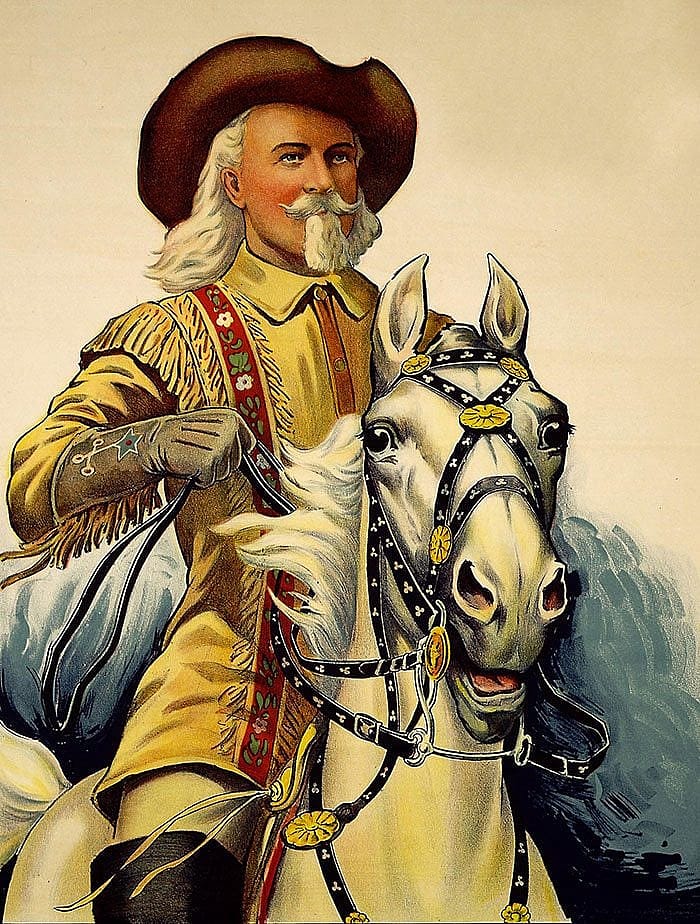
NEW YORK: The cable news from London would seem to indicate that the coming year will witness a large hegira [exodus] of armed goslings from England who intends to prosecute the cow gentlemen and Deadwood stage-robbing business on our frontier. It is perhaps unnecessary to state that Buffalo William, the peaceful and courteous hirsute [hairy] wonder from Nebraska, is largely responsible for this. Wherever he has gone with his eccentric, dark-red, self-made Indians and his speckled bronchos, he has sown the seeds of discontent in the grammar schools and bred open rebellion in the primary department.
Look along the red-hot trail of B. William and you will find the American and foreign youth alike turning with undisciplined loathing from his educational pursuits to immerse his legs in a pair of chaperajos, to wield the brief but stinging quirt, to whoop up the red-eyed, haughty and high-tailed Texan Maverick, or shoot large, irregular holes into the otherwise poorly ventilated savage.
And what is to be the result of all this? I do not ask it in a light or flippant manner, but in a tone of deepest solicitude.
Buffalo Bill is encircling the earth with his Wild West show. Everywhere the fever follows his performances. Wherever he goes, high-heeled boots, lariats, tarantula juice, and hair rise to a fictitious value. Boys leave the farm to follow the show away. Picnics lose their flavor and seem flat. Climbing a shag-bark tree to fasten a swing does not seem so daring a feat as it used to. The custard pie vainly beckons to the young man who is near-sighted and who wears lavender pantaloons to come and sit on it. In the rural district, the watermelon ripens and goes to decay, and petty larceny everywhere seems tame, dull, and flabby. No one wants to steal wealth unless it has gore and hair on it. Dollars or watermelons that can be taken without walking over a corduroy road of dead bodies seem hardly worth taking…
And so it is likely to continue while Mr. Bill is on his wild, whooping, shrieking, and
Coliseum-storming career. After awhile, it will not be the British Isles alone that will contribute to our languishing frontier cemeteries, but saturated with a wild desire to snort across the American plains and provide themselves with Indian Pocahontases, the youth of all lands and all climes will buy wide, white, soft hats, fur pantaloons, with lambrequins [decorative draped cloth] down the sides; the low, gruff-voiced American revolver, with the dry, hacking cough; the noisy and voluminous Mexican spur and the foundering mustang, with one white eye and the gift of appearing to go like a cyclone, while really making mighty poor time. Then they will invade our Western borders and there will not be an Indian apiece for them by next spring.
Already there are not stages enough to rob unless the mail service should be expedited this winter, and unless we can work in the Tantivy [gallop] or have an occasional attack on our fox hunters by the Anglo-and-Clyde-built cowboys, any one can see that we are going to run short of out-door sports…

Gentle reader, we stand before the crumbling brink of a great cowboy eruption from England, Ireland, Scotland, the Continent, and the great Orient itself. I do not think that Buffalo Bill had any idea when he started in to rehearse his great society drama and horse play that it would so soon disturb international relations and throng our cactus forests and greasewood vineyards with juvenile cowboys from Greenland’s icy mountains and India’s coral strands. If he had, he would have hesitated about it. Now, alas! It is too late. He is billed for the Coliseum, and already people from Syrsilla are coming into town, bringing their dinners and hitching their teams up to the fence behind the Coliseum.
Hard, blue preserved seats, I am told, are being erected around the main amphitheatre, and the Roman schools are closed. Everything points toward a great festal day, if that would be the right kind of day to use in this place.
Is it to be wondered at that we will soon see Roman cowboys, who ought to be in school, landing here on our coasts and inquiring at the corner of Broadway and Chambers street where they can find an Indian outbreak to quell? May we not look for the Asian and Chinese contingent by next spring, armed to the teeth, and asking at an intelligence office where the Deadwood stage is expected, so they can attack it and rob it a few times?
Yet who but Colonel Cody would have thought of going to the four corners of the earth with such a show? Who but he would have hired the Coliseum after its long, dull, and disastrous season? Now, however, that he has opened the way it will be no doubt the beginning of an era of prosperity for that great place of amusement, and the Wild West show will be followed very likely by stereopticon entertainments and a humorous lecture. In that way, Buffalo Bill is a benefactor, for the long and painful silence that has settled down for centuries about the galleries and dim foyers of the Coliseum will be broken and the thrilling tones of “Curfew shall not ring tonight” will jar the chinking out of the crumbling walls, that in years past resounded with the applause of the Roman populace as Spartacus told the people that he was not always thus…
I can see that in a dramatic way, Buffalo Bill has opened up a new route, besides starting towards America a perfect swarm of amateur cowboys who dare to cross the plains and rescue a beautiful young lady who is walking from Julesburg to Walla Walla wearing a perle francaise dress, the front veiled with Hoboken “rick-rack,” pompadour panels of crème A-shaped faille francaise, en bouffant, lined with oyster velvet and edged with heavy elephant’s breath silk curd, while in the V-shaped corsage rustles a large bunch of Marshal O’Neil roses.
I saw one of these kindergarten cowboys get off a train once and go up through the town. Afterwards, I saw him come back. He looked different somehow. When he got off at the station I noticed that he had long hair, which was tied back with a pale blue watered silk ribbon. He had long legs, which seemed to extend from his Adam’s apple to the ground. A narrow, red four-in-hand necktie denoted where the legs terminated and the head began.
He Looked Real Sweet
When he took the return train, there was nothing by which to identify him except a strawberry mark, which he carried carefully concealed in a shawl strap.
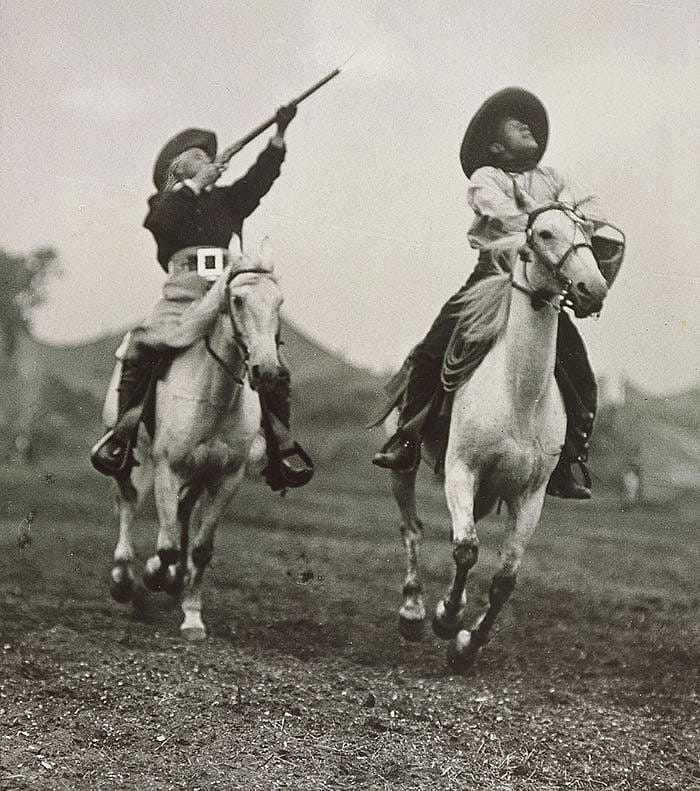
Boys who sigh to dash madly across the plains or follow the cowpath to fame do not know of the dangers and desolation such a life involves. There are two classes of cowboys in the West, viz [namely], the working cowboy and the lay-figure cowboy. The latter remains in town and rolls cigarettes which he smokes fiercely through his nose. He talks learnedly of cattle brands, corrals, round-ups, “cavvy [horse string] yards,” ranges, bands, bronchos and herds, but doesn’t really know a range cow from a Texas steer.
The genuine cowboy is not always beautiful, but he is conversant with his business; knows every brand in his district at least and who owns it; is brave where bravery is most needed, that is, in the discharge of his duty. To stand watch all night in a blizzard and hold a band of restless, bellowing cattle from stampeding, to ride all the next day half asleep in his saddle, to fall occasionally from his pony, when the latter makes a mistake and steps in a prairie-dog village, or to have a collar-bone broken when fifty miles from a physician, are some of the features of cowboy life, which the boys who run from school to cross the Missouri do not consider.
Moreover, it would be well if every boy in America or elsewhere would write in his own hat with a blue pencil that there is no rose-bordered road to success, and that even the man who is born beautiful and marries rich has to fight his way. The great West does not so sorely need pretty men with buckskin clothes as it does good citizens who are willing to work. Wherever the sun shines or grass grows and water runs, the young man who will give a good day’s work for a fair day’s wages will surely be promoted as he deserves it. It may not be funny, but it is the never-dying truth that industry, integrity, and perseverance are mighty good substitutes for symmetry, genius, and hair.
Post 085
Written By
Nancy McClure
Nancy now does Grants & Foundations Relations for the Center of the West's Development Department, but was formerly the Content Producer for the Center's Public Relations Department, where her work included writing and updating website content, publicizing events, copy editing, working with images, and producing the e-newsletter Western Wire. Her current job is seeking and applying for funding from government grants and private foundations. In her spare time, Nancy enjoys photography, reading, flower gardening, and playing the flute.
